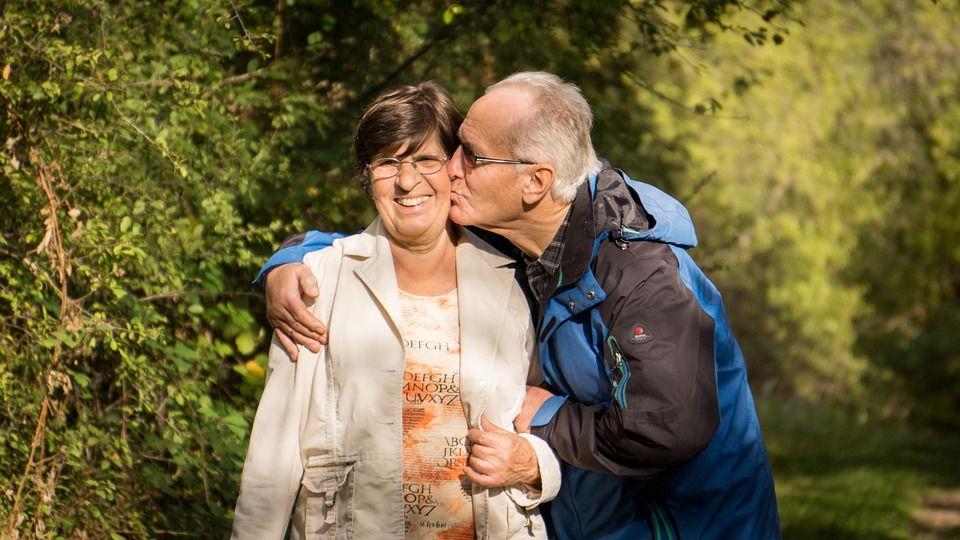
Grandparents are a big part a grandchild’s life, but sometimes you only have memories of love left of them.
So, as a large part of a grandchild’s life with the memories of love and companionship, their loss is felt when they pass away. How big this loss is felt often depends on the importance of the grandparent in a child’s life and the memories built too. In fact, lots of grandparents are primary caregivers for their grandchildren, so there are memories already being made. If not primary caregivers, many still take care of grandchildren on a regular basis. So, grandparents can influence a child’s values and behavior, giving advice. They form strong emotional bonds with grandchildren that build memories. So, Grandparents Day is a celebration of this close relationship.
Plus, it’s important for this close relationship to develop even with such feelings of grief. You are going to die before your children. So, teaching grandchildren to handle the grief of someone who’s close dying, will help them to handle your eventual passing. So, understanding and coming to grips with a grandparent’s death is a painful and needed stepping stone.
Still when a grandparent passes how do you explain it to the grandchildren? Does this affect young grandchildren before they can really express themselves? Plus, how should the grieving be handled? Is their difference in how grief affects a grandchild who is a toddler and one who is a teenager?
Grandchildren and grief
A toddler who spends a lot of time with a grandparent will be confused. One day the grandfather is playing games and laughing with them. The next day they’re gone, and the toddler never sees the grandparent again. A young child though who hasn’t spent much time with a grandparent may not react much at all. Even if they loved the one who has passed. The toddler who really didn’t know Grandma or Grandpa might just react to the grief of the parents not knowing why the parents are upset.
If the child is of school age though, they may ask questions or talk about how they feel. They also may act out feelings through play. If the grandchild is of school age and asks questions, try to answer them in a matter of fact way. Sharing good family memories will additionally help the child come to grips with missing the grandparent.
If the child is a teenager, they will feel loss and grief more. They have more memories. But they will also have the added problem of trying to figure out how to react appropriately. They will be trying to sort out what’s expected of them and how they should act. Teens need to have a role model so that they know their responses are appropriate.
Techniques to help grandchildren through grief
There are some techniques to help a child express their grief over the death of a grandparent. For a younger child, books on loss of a grandparent are helpful. By reading the book to the child, the grandchild can let out emotions safely.
Also, an explanation on how the cycle of life works is needed. It’s something which should be explained before someone in the family passes away. Using seasons of the year is a workable example; or the cycle of a tomato plant. If the child understands the cycle of life and death in something small like a plant, then explaining the loss of a grandparent will be a little easier. The child can associate the death with the explanation of the cycle of life.
Don’t create stories such as “Grandma is away for a while.” It will only confuse the issue and the child. State the facts gently, for example, “Grampa was very sick, and he’s died.” If there are religious beliefs accepted within the family, they should be used. For example, “Grandpa was sick and died and went to heaven.”
Don’t avoid what the child is feeling; it won’t go away. If the child’s feelings aren’t acknowledged, then the child can’t go through the stages of grief. Let the child know what they are feeling is natural.
Some things you can do after the death
After a grandchild has experienced the death of a grandparent, there are ways to handle the memories. On Grandparents Day, stories about the grandparent should be shared. Funny stories, and stories with lessons in them will help. The stories involved will help ease any lasting grief or sorrow.
Also, a trip to the cemetery where the grandparent is buried is a good idea. Planting a flower or placing flowers in a vase is a good way to share memories as well. On Grandparents Day, an outing with grandchildren at the grave and a moment of silence will show respect.
When a grandparent’s death occurs, it can evoke strong memories and emotions. Helping the grandchild handle these emotions is important.


